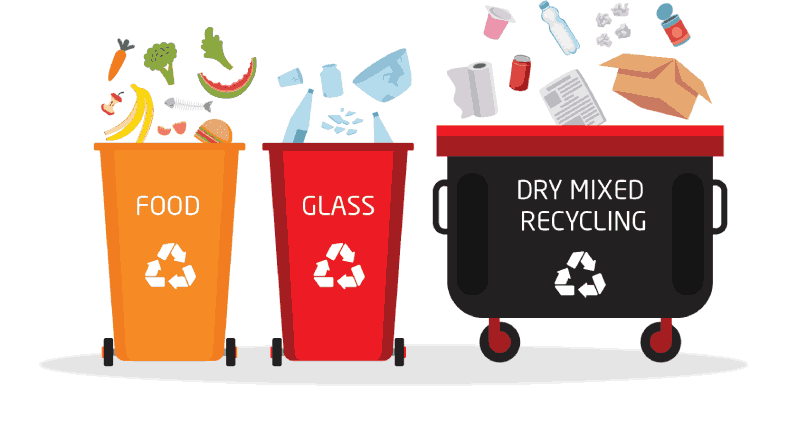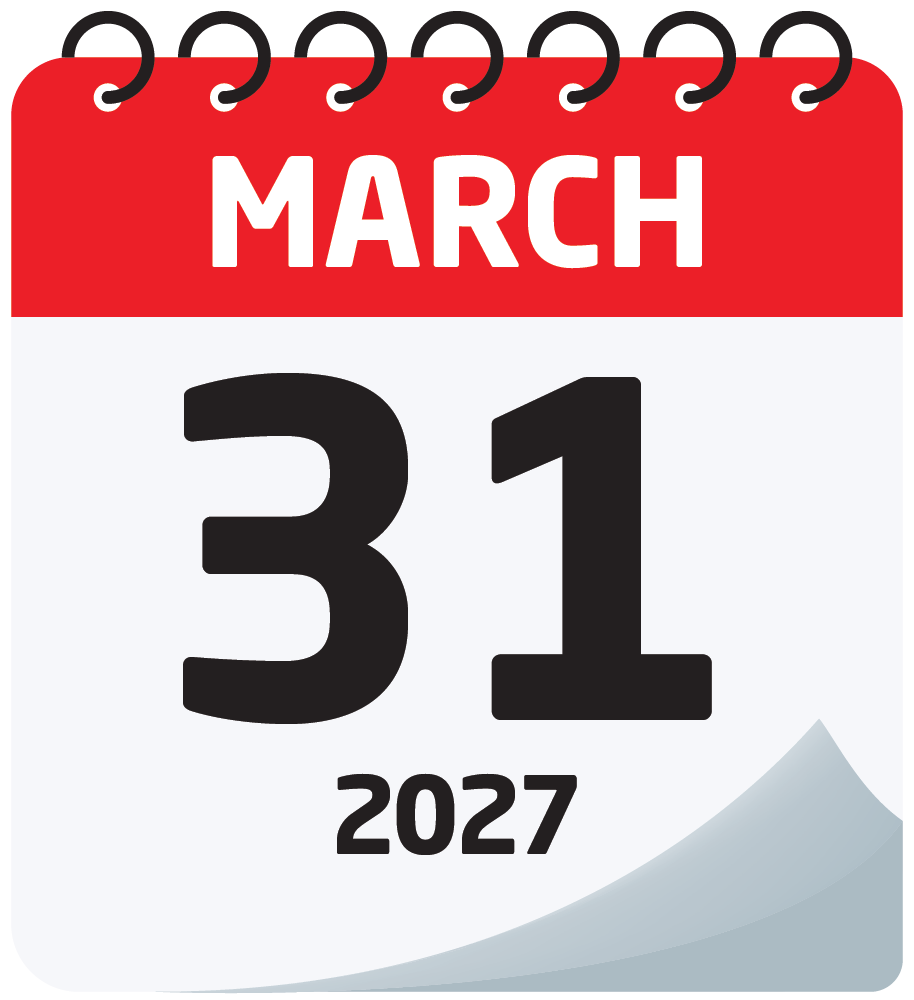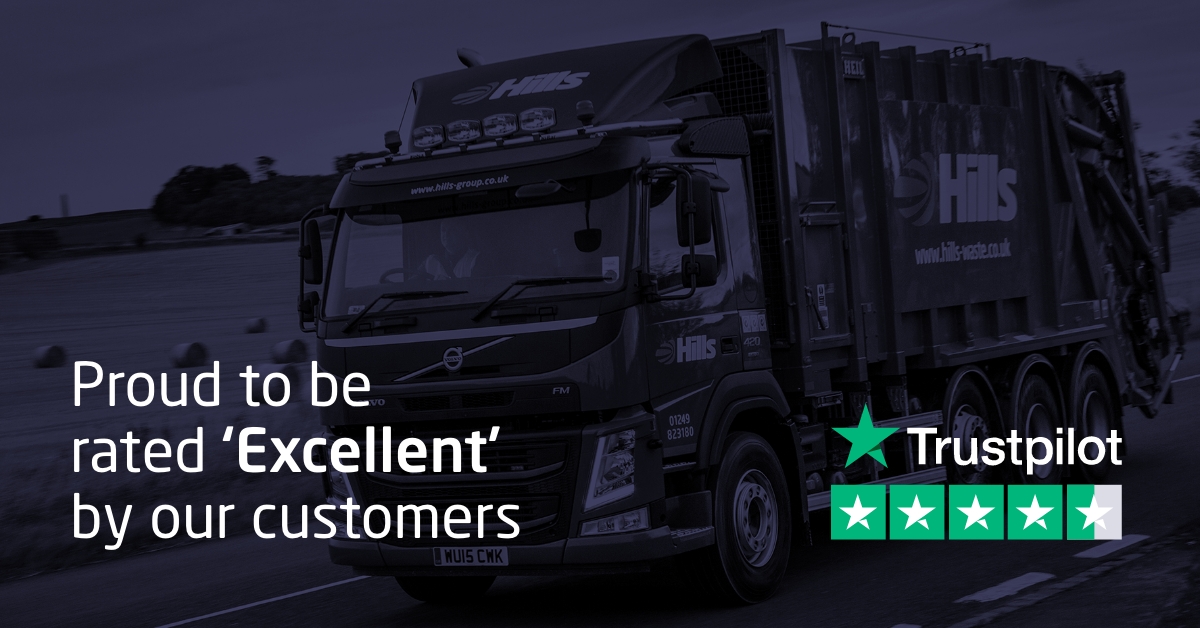%20ARTWORK%20FINAL-1.jpg?width=1800&height=600&name=16412%20Hills%20Waste%20(Simpler%20Recycling%20Campaign%20-%20Website%20Landing%20Page%20Banner%20-%20Post%2031st%20March)%20ARTWORK%20FINAL-1.jpg)
Waste management regulation in England has changed. On 31 March new Simpler Recycling legislation, introduced by The Department for Environment, Food & Rural Affairs, came into force.
This legislation is designed to improve business recycling rates, by standardising recycling practices across England. The legislation makes it clear that food waste items can no longer be sent to landfill and should not be included in general waste disposal.
At the same time, Simpler Recycling encourages businesses to combine specific items together in one recycling bin (dry mixed recycling). This enables a higher level of recycling, whilst reducing the volume of waste going to landfill. The legislation, together with the recent changes to Landfill Tax, is designed to improve recycling rates.

“The introduction of the Simpler Recycling legislation aims to make it easier for businesses to recycle by mandating the segregation of food waste from other waste streams. By consolidating all dry recyclable materials into one bin, businesses can recycle more and reduce general waste costs, particularly as Landfill Tax increases will significantly impact disposal costs.”
Neil Pollard, Commercial Collections Director, Hills Waste Solutions
Watch our short animation to learn more about Simpler Recycling.
The benefits to businesses



Review your current waste arrangements
Most businesses should now be sorting their waste properly to be compliant with the new regulations, and be using licensed carriers to collect it. Companies that don’t follow the guidelines could face penalties. Some businesses (Micro-firms) are exempt from the regulations until 31 March 2027, but may still benefit from reviewing their curent arrangements.
For businesses that have yet to comply with the regulations, there are some steps to consider:
- Review your waste processes to identify areas needing adjustment for compliance.
- Train your team to confidently segregate waste and follow new guidelines.
- Add clear, visible signage to bins, making it simple for staff and customers to dispose of waste correctly — essential for industries like fast food.
- Check your waste collection contracts and note renewal dates to plan ahead.
- Consult experts to choose the best waste collection services for your needs.
- Compare suppliers and secure competitive quotes for food waste collections.
- Allow time to notify current providers and transition smoothly.
Micro-firms, defined as businesses with fewer than 10 full-time equivalent employees, have an extended deadline of 31 March 2027 to comply with the new Simpler Recycling requirements. If you are unsure, Hills can easily help determine whether your business will qualify.
Make sure that your business can dispose of the waste you produce in the most appropriate containers and that you have enough bins for the volume of waste produced. This particularly applies to food waste which must be placed in a separate food container.

A guide to what waste goes in which container
METALS |
|
|
|
|
Food, drink and other liquids, including aseptic and chilled cartons |
|
|
|
Black bag waste (general or residual), hazardous waste, liquids, food waste, wood, and polystyrene |
INCLUDES |
|
|
|
INCLUDES |
Clean mixed glass bottles and jars |
|
|
INCLUDES |
|
|
|
Landfill Tax Increases from April 2025
Following the March 2024 Budget announcement, Landfill Tax rates will rise significantly:

Why choose Hills Waste Solutions?
By choosing Hills Waste Solutions as your trusted partner we will help you navigate the upcoming legislation changes with ease. Our expert team will help you plan ahead to ensure full compliance while addressing your unique business needs. With an ‘Excellent’ rating on Trustpilot and a 97% success rate, we offer the reliability and expertise of a local company dedicated to simplifying waste management and supporting your environmental goals.
Contact us today for peace of mind and a smooth transition to the 2025 regulations.

Frequently asked questions
-
What is Simpler Recycling Legislation?
Simpler Recycling legislation, came into effect on 31 March 2025, and was designed to standardise recycling practices across England. The purpose of the initiative was to eliminate confusion around the recyclability of materials, making recycling processes more uniform and easier to follow. A significant focus of this legislation is the eradication of food waste going to landfill. By collecting food waste, it is processed by anaerobic digestion, where it generates fertiliser, helping to grow more food. The energy generated by this process is sent to the grid for businesses and households to use.
For more details, refer to the Government Executive Summary and Press Release on how Simpler Recycling impacts your business.
-
How does Simpler Recycling work?
Under the new legislation:
- Food waste must be placed in a specific food waste bin for collection and recycling. Food waste can no longer be placed in general waste bins or mixed with other recyclables.
- Dry Mixed Recycling (DMR), such as recyclable paper, cardboard, metals, and plastics, can be combined in one bin.
- Glass waste must be disposed of in separate bins.
- General waste bins should only contain non-recyclable, non-hazardous materials.
This approach simplifies recycling for businesses while reducing the volume of waste sent to landfill.
-
Who is affected by Simpler Recycling Legislation?
All businesses, schools, hospitals, and other non-household municipal premises must comply with Simpler Recycling. Fast food retailers and businesses handling large quantities of food may need to change their processes and bins to ensure food waste is segregated appropriately.
Micro-firms with fewer than ten full-time employees have an extended deadline of 31 March 2027. Full-time equivalent employment is calculated across the business rather than per site, meaning multi-branch enterprises exceeding ten employees are not exempt.
-
What will the Simpler Recycling Legislation achieve?
This initiative helps to eliminate the confusion surrounding the recyclability of different materials in different regions, making the process more uniform and understandable for everyone.
The aim is to improve the recycling rates across England.
A particular focus of the new legislation is the eradication of food waste going to landfill. By avoiding landfill, the food can be processed through anaerobic digestion which generates fertiliser, which helps to grow more food. In addition, the energy generated though this process can then be sent back to the grid for use by households and businesses.